Madame X and Princess X
The title of the work is Madame X. Imagine a fashionable artist pretending to anonymize, in this way, the portrait of a well-known woman. The effect is guaranteed. In 1915, for example, the sculptor Brancusi titled a highly stylized bronze portrait of Princess Marie Bonaparte Princesse X. The scandal erupted at the 1920 Salon des Indépendants. To be fair, the figure did resemble the form of a phallus.
Explosive scandal
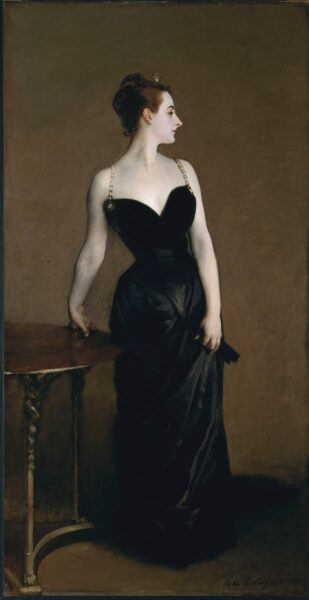
It cannot be ruled out that Brancusi had heard of an earlier, equally explosive scandal. That was in 1884 in Paris, when the American John Singer Sargent (1856–1925), then living in the city, exhibited at the Salon—the one essential opportunity for contemporary artists to be noticed—a canvas more than two meters high depicting a grande dame of Paris society, Virginie Gautreau.
Sickly pallor
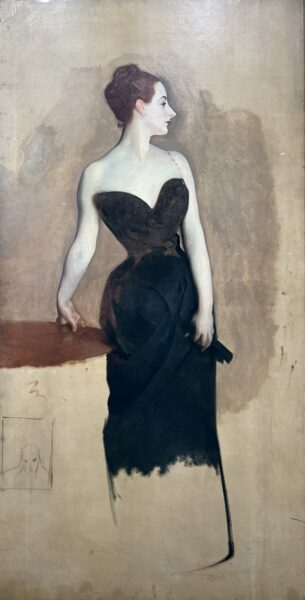
The painting was first titled Madame **, quickly replaced by X. Several elements shocked the public. Beyond the faux-enigmatic title, there was the sickly pallor of the sitter’s skin, her body wrapped in a sublime black sheath gown. At just 26, she is presented as a commanding woman. The canvas, of extraordinary expressive power, has no backdrop other than a table on which she leans. Everyone mocked her complexion. Singer Sargent himself would write: “Do you object to women who are painted up to the point of having a uniform lavender-colored complexion suggestive of blotting paper?”
A question of strap
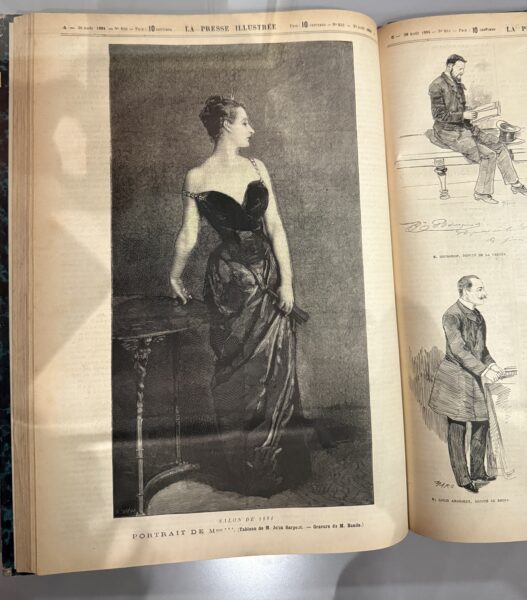
Virginie had staged her own persona like an actress. Yet what caused even greater outrage was the strap of her bodice slipping down her arm—a studied negligence, supposedly fixed for eternity,that could either announce or conclude an undressing. The uproar was immense. The sitter did not buy the painting. Her mother begged the artist to withdraw it from the exhibition. In vain. He would only consent, afterward, to restore the strap to its proper place.
Radicality
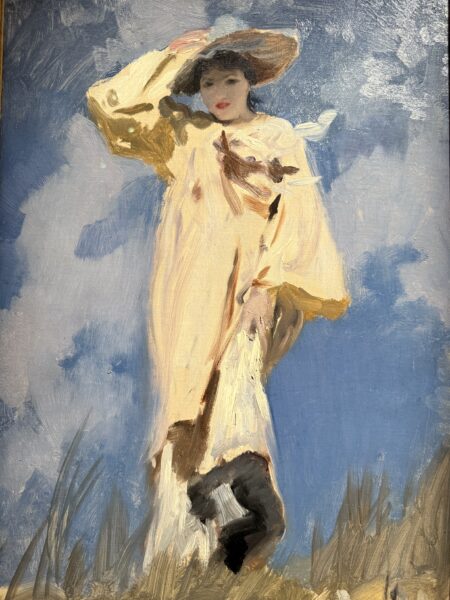
At the Salon, Singer Sargent was mercilessly ridiculed. And yet the work stands as one of exceptional radicality and modernity. Today it is one of the stars of the new exhibition at the Musée d’Orsay, on view through January 11, devoted to the artist. Madame X has traveled especially for the occasion from the Metropolitan Museum of Art in New York, where it has been in the permanent collection since 1916.
The best thing I have ever done
By that time, Virginie Gautreau had been dead for six months. And the author of this memorable painting declared to the museum’s director: “I suppose it is the best thing I have ever done.”
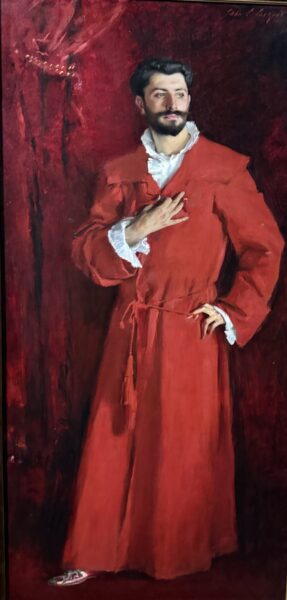
Stephanie L.Herdrich
“I’m not sure that Singer Sargent—who greatly admired Manet and knew how scandal could serve a career—wasn’t acting deliberately,” notes Stephanie L.Herdrich, co-curator of the exhibition, about Madame X. What is most striking in this retrospective of 90 works is the way the virtuoso technician could produce, side by side, daring and visionary pictures and others that are frankly tedious.
Tedious
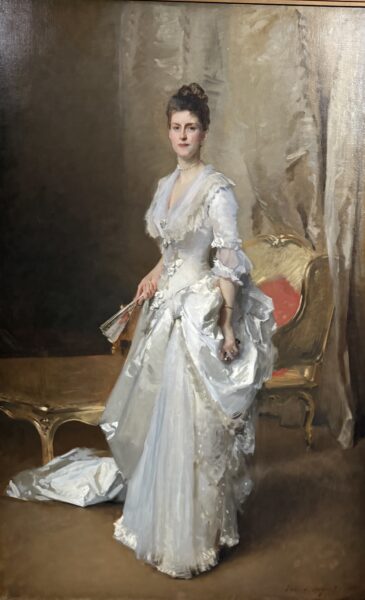
In the same year as Madame X, he painted a pompous, very 18th-century portrait of Madame Henry White, all ruffles and surrounded by opulent furniture, which- it must be admitted- nonetheless recalls the majesty of certain English portraits, such as those by Gainsborough.
In Madrid with Velasquez
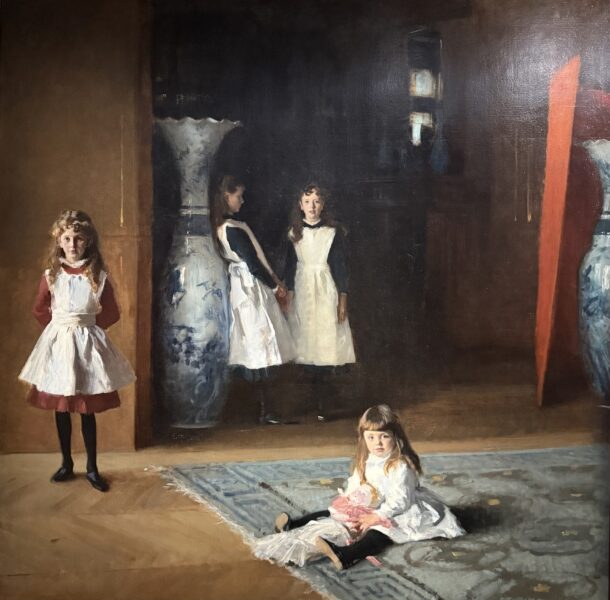
This great traveler explored widely, and after Madrid drew inspiration from Las Meninas to paint the monumental The Daughters of Edward Darley. Here, the shadow effects recall Velázquez while the blurred brushwork flirts with Impressionism. The result is masterful.
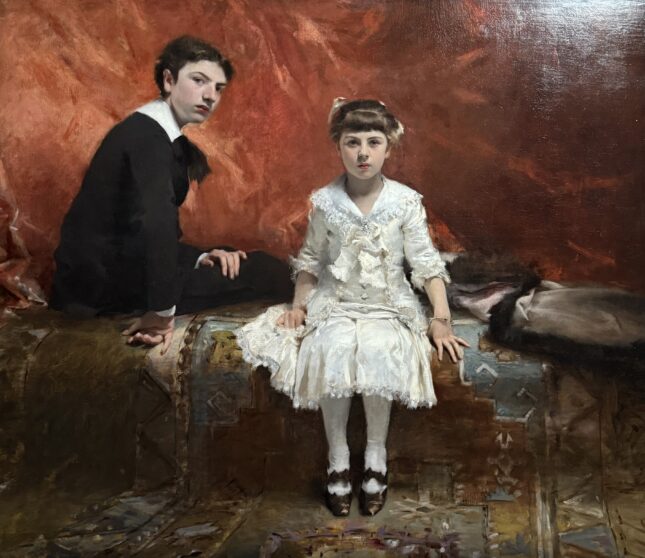
Through January 11. John Singer Sargent: Éblouir Paris . Musée d’Orsay. www.musee-orsay.fr
Support independent art journalist
If you value Judith Benhamou Reports, consider supporting our work. Your contribution keeps JB Reports independent and ad-free.
Choose a monthly or one-time donation — even a small amount makes a difference.
You can cancel a recurring donation at any time.




